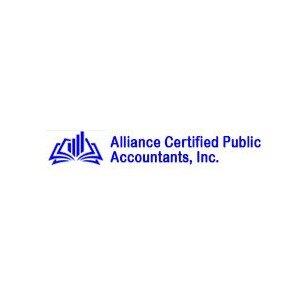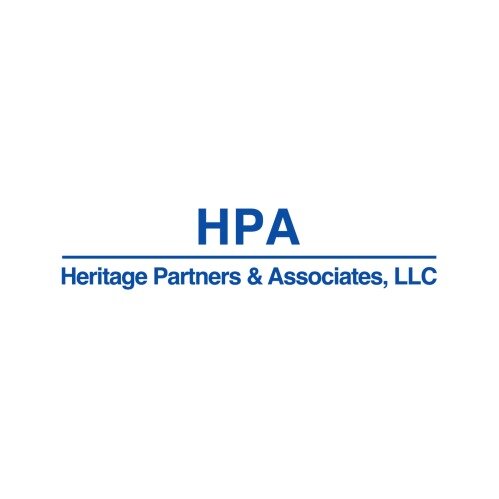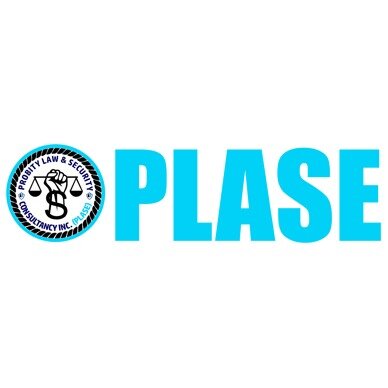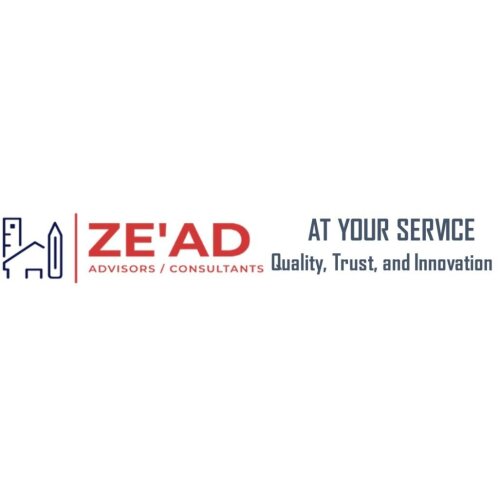Best Renewable & Alternative Energy Lawyers in Liberia
Share your needs with us, get contacted by law firms.
Free. Takes 2 min.
Or refine your search by selecting a city:
List of the best lawyers in Liberia

Alliance Certified Public Accountants, Inc. (Alliance CPAs, Inc.)
15 minutes Free ConsultationAbout Renewable & Alternative Energy Law in Liberia
Renewable and alternative energy is an important and growing sector in Liberia. The country is focusing on developing new sources of energy to diversify its energy supply beyond traditional biomass and imported fossil fuels. Renewable sources such as solar, hydro, wind, and biomass are being explored to improve energy access nationwide. Renewable and alternative energy law in Liberia refers to the legal framework that regulates how these energy sources are developed, funded, distributed, and used. As the Liberian government works to attract investment and meet sustainability goals, understanding the law in this area is valuable for businesses, investors, community groups, and individuals interested in clean energy solutions.
Why You May Need a Lawyer
Seeking legal advice in the area of renewable and alternative energy in Liberia can be essential for a variety of reasons. Here are some common situations where people may require legal help:
- You are a foreign or local investor interested in developing or partnering in a renewable energy project, such as a solar farm or hydroelectric plant. - You are a landowner negotiating with developers or the government for energy projects on your property. - You are applying for permits, licenses, or incentives for a renewable energy business. - You are dealing with complex regulations and need guidance on compliance with environmental, safety, or land use laws. - You want to understand your rights and obligations under Power Purchase Agreements or when connecting to the national grid. - You are involved in a dispute over land use, compensation, or contract terms relating to energy projects. - You represent a community seeking equitable benefit-sharing or environmental protection in a proposed energy project. - You are navigating the legal environment to access government subsidies or international financing for renewable energy. - You need intellectual property protection for new energy technologies or innovations. - You require advice on tax incentives or import duty exemptions for renewable energy equipment.
Local Laws Overview
Liberia's legal framework for renewable and alternative energy is shaped by national laws, policies, and international agreements. Some key aspects are:
- The Electricity Law of 2015 governs the generation, transmission, distribution, and sale of electricity including from renewable sources. It establishes the Liberia Electricity Regulatory Commission (LERC) to oversee the sector. - The Renewable Energy & Energy Efficiency Policy provides guidelines for promoting clean energy and encourages private sector participation. - The Environmental Protection Agency Act mandates environmental impact assessments for energy projects to ensure sustainability and public health. - There are licensing and permitting processes set by the government, primarily overseen by the Ministry of Mines and Energy and the LERC. - Land use and acquisition for energy projects is guided by national land laws and regulations to ensure fair compensation and community engagement. - Liberia is a signatory to various international environmental agreements which influence its energy policies. - Special tax incentives or customs duty exemptions may be available for importing renewable energy equipment. - Public-Private Partnership laws are relevant where government contracts are involved in energy infrastructure projects.
Frequently Asked Questions
What is considered renewable or alternative energy in Liberia?
Renewable and alternative energy in Liberia typically includes sources like solar, hydroelectric, wind, biomass, and sometimes geothermal. These sources are naturally replenished and can help reduce dependence on fossil fuels.
Do I need a license to operate a renewable energy business in Liberia?
Yes, operating any electricity generating facility, including private or commercial renewable energy projects, requires licensing and regulatory approval from the Liberia Electricity Regulatory Commission and other relevant agencies.
Are there incentives for investing in renewable energy?
The government of Liberia, with support from donors, has established incentives such as tax holidays, customs duty exemptions, and special financing schemes to encourage investment in renewable energy.
What regulations must be followed for an off-grid solar project?
Off-grid projects generally require compliance with safety standards, equipment certification, and sometimes permit approvals. It is important to check with the LERC and Ministry of Mines and Energy for current requirements.
Can communities negotiate for benefits if a renewable project is developed on their land?
Yes, both landowners and communities can negotiate for compensation, local employment, or social development benefits as part of agreements with project developers. Proper legal representation ensures fair terms.
What role does the Environmental Protection Agency play?
The EPA reviews and approves environmental impact assessments for energy projects, monitors compliance with environmental laws, and can impose penalties for violations that harm ecosystems or communities.
How do international investors navigate Liberia's energy laws?
International investors must comply with all local laws, obtain required permits, and often work with local legal counsel to navigate land acquisition, regulatory approval, and government contracts.
Is it possible to generate and sell power to the national grid?
Yes, private and independent power producers can sell electricity to the national grid under terms set out in power purchase agreements, but this must be approved by regulatory authorities.
Are there restrictions on importing renewable energy technology?
Certain restrictions and duties may apply but there are incentive regimes to facilitate imports of renewable energy equipment. Legal advice helps clarify the process and available exemptions.
Who monitors quality and safety standards for renewable energy installations?
Regulatory oversight is provided by the Liberia Electricity Regulatory Commission, with technical input from the Ministry of Mines and Energy. Compliance with national and international standards is required for all installations.
Additional Resources
If you are seeking more information or assistance in the field of renewable and alternative energy in Liberia, these resources may be helpful:
- Liberia Electricity Regulatory Commission (LERC) - Ministry of Mines and Energy - Environmental Protection Agency (EPA) of Liberia - Rural and Renewable Energy Agency (RREA) - Liberia Chamber of Commerce - Liberia Renewable Energy Association - National Investment Commission - United Nations Development Programme Liberia - Energy Projects - African Development Bank Liberia Country Office - Local law firms with expertise in energy and infrastructure
Next Steps
If you need legal assistance regarding renewable and alternative energy in Liberia, consider taking these next steps:
- Clearly define your project, investment, or legal concern as it relates to energy. - Gather relevant documents such as project proposals, permits, land agreements, or correspondence with authorities. - Contact a qualified Liberian law firm or legal advisor with experience in energy law and regulatory compliance. - Consult with sector agencies like the LERC or the Ministry of Mines and Energy for procedural guidance. - Stay updated with changes to local laws and regulations by engaging with professional associations or government briefings. - If negotiating contracts or agreements, involve legal counsel early to protect your interests and ensure compliance. - For community matters, consult with organizations such as the Rural and Renewable Energy Agency for support and guidance on stakeholder engagement. - Keep detailed records of all permits, licenses, and communications with government agencies for future reference.
Addressing legal issues promptly and with professional guidance will help ensure the success of your renewable or alternative energy project in Liberia.
Lawzana helps you find the best lawyers and law firms in Liberia through a curated and pre-screened list of qualified legal professionals. Our platform offers rankings and detailed profiles of attorneys and law firms, allowing you to compare based on practice areas, including Renewable & Alternative Energy, experience, and client feedback.
Each profile includes a description of the firm's areas of practice, client reviews, team members and partners, year of establishment, spoken languages, office locations, contact information, social media presence, and any published articles or resources. Most firms on our platform speak English and are experienced in both local and international legal matters.
Get a quote from top-rated law firms in Liberia — quickly, securely, and without unnecessary hassle.
Disclaimer:
The information provided on this page is for general informational purposes only and does not constitute legal advice. While we strive to ensure the accuracy and relevance of the content, legal information may change over time, and interpretations of the law can vary. You should always consult with a qualified legal professional for advice specific to your situation.
We disclaim all liability for actions taken or not taken based on the content of this page. If you believe any information is incorrect or outdated, please contact us, and we will review and update it where appropriate.
Browse renewable & alternative energy law firms by city in Liberia
Refine your search by selecting a city.











